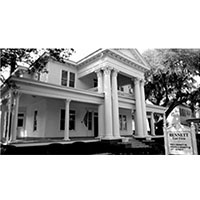Hahira RICO Act Lawyer, Georgia
Sponsored Law Firm
-
 x
x

Click For More Info:
-
The McReynolds Law Firm, PC
3799 Main Street #87012 College Park, GA 30337» view mapCriminal Defense Defending Your Rights
Let The McReynolds Law Firm, PC handle all your criminal defense needs.
800-919-4121
Not enough matches for Hahira RICO Act lawyer.
Below are all Hahira Criminal lawyers.
Jim T. Bennett
✓ VERIFIEDAccident & Injury, Criminal, Divorce & Family Law, Estate, Real Estate
Making Excellence A Standard For Three Generations
Jim T. Bennett has been a member of the State Bar of Georgia since 1998. Jim graduated in the top ten of his class from the Walter F. George School o... (more)
Karla L. Walker
✓ VERIFIEDCriminal, Divorce & Family Law, Accident & Injury, Workers' Compensation, Employment
Karla Walker is part of a team of progressive and aggressive attorneys in South Georgia at the law firm of Copeland, Haugabrook & Walker. Born and r... (more)
Jason Banks Moon
Criminal, Divorce & Family Law, Estate, Personal Injury, Lawsuit & Dispute
Status: In Good Standing Licensed: 20 Years
FREE CONSULTATION
CONTACTNick M. Bajalia, Sr.
Personal Injury, Car Accident, Workers' Compensation, Criminal
Status: In Good Standing
Richard Delmar Barnes
Federal Appellate Practice, Estate, Criminal, Bankruptcy
Status: In Good Standing
Richard A Wilkes
Litigation, Lawsuit & Dispute, Criminal, Personal Injury
Status: In Good Standing Licensed: 20 Years
Judge William Robert Folsom
Social Security, Child Custody, Criminal
Status: In Good Standing Licensed: 37 Years
John Gee Edwards
Lawsuit & Dispute, Federal Appellate Practice, Criminal, Insurance, Mass Torts
Status: In Good Standing
Latesha Yvette Bradley
Adoption, Criminal, Banking & Finance, Animal Bite
Status: In Good Standing Licensed: 26 Years
 Jule McReynolds College Park, GA
Jule McReynolds College Park, GA AboutThe McReynolds Law Firm, PC
AboutThe McReynolds Law Firm, PC


